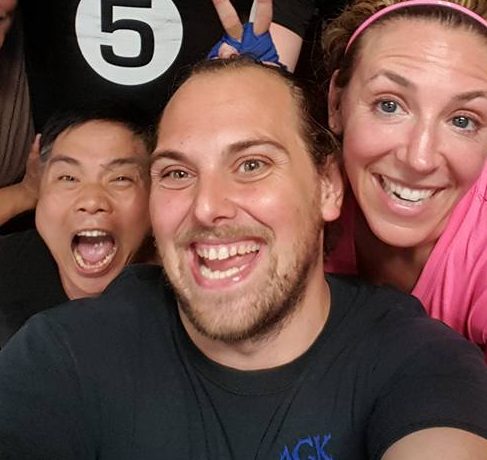Foundations of Independence in Martial Arts
Independence Day, a celebration synonymous with freedom and self-governance, reverberates with the ethos of martial arts, where practitioners embark on a journey of personal and collective liberation. This connection isn’t just symbolic; it manifests in the very principles and practices of martial arts that advocate for a disciplined, aware, and autonomous lifestyle. Integrating martial arts into one’s life can be transformative, offering tools for personal independence and empowerment.
Martial arts is not just about learning to fight; it’s about learning to live. At the core of martial training lies the commitment to self-discipline—a quality that fosters independence by teaching practitioners to rely on themselves, to trust their instincts, and to control their actions. Training consistently develops a mindset where challenges are approached with confidence and decisions are made with conviction.
Historical figures in martial arts often exemplify these traits. Consider the samurai of feudal Japan, whose lives were governed by the Bushido code, emphasizing honor, discipline, and moral behavior. These warriors were not just skilled fighters but also independent thinkers and philosophers, contributing significantly to the cultural fabric of their time.
Incorporating simple martial arts principles like daily discipline, respect for others, and continuous improvement can significantly impact everyday life. Starting the day with a structured routine, similar to a martial artist’s training regimen, can help cultivate self-discipline and set a productive tone for the day.
Training for Physical Independence
Physical independence through martial arts is achieved by mastering a variety of skills that enhance body awareness and control. This training goes beyond mere physical fitness; it involves understanding the body’s capabilities and limits, pushing them safely, and using physical prowess responsibly. Such training boosts confidence, essential for personal independence.
For example, the repetitive practice of sparring techniques or forms improves physical coordination and agility, which can be translated into better handling of daily physical tasks and challenges. Regularly practicing these forms also instills a rhythm and discipline that can be mirrored in handling work tasks or home chores with efficiency.
To embody these benefits in daily life, embrace the martial arts mindset of welcoming challenging tasks, understanding that through dedicated practice and perseverance, mastery is achievable. Recognize that independence doesn’t mean going it alone—instead, it involves a synergy where support from others enhances your own efforts without diminishing your role. Engage fully, using every challenge as a stepping stone, reinforcing the idea that you are capable and resilient, even when the path is tough. Things are hard, but you can do hard things!
Mental Independence Through Martial Arts
Mental independence is a cornerstone of martial arts, where practitioners learn to make quick, strategic decisions during combat. This mental training is crucial for developing focus and resilience, qualities that are equally important outside the training hall. Mental strategies used in sparring, such as anticipating an opponent’s moves and planning counterattacks, can enhance problem-solving skills in everyday situations.
Moreover, the concentration required to master complex techniques can improve overall mental focus and reduce susceptibility to distractions. This can be particularly beneficial in today’s fast-paced, multitasking environments, whether at work or in personal life.
Adopting mindfulness practices from martial arts, like meditative breathing before a stressful meeting or visualization techniques for goal setting, can enhance mental independence. These practices help maintain clarity and calmness, empowering one to handle life’s challenges more effectively. Pair this with decisiveness in your decision-making and you’ve got a powerful combo of mental independence that will lead you (and guide others) toward success.
Emotional Independence
Martial arts offer a unique framework for emotional development by teaching practitioners how to manage their feelings, particularly in high-pressure situations. Control over one’s emotions in martial arts is crucial for maintaining composure and making clear-headed decisions during a fight. This emotional regulation is invaluable in personal relationships and professional settings, where emotional reactivity can lead to conflicts or poor decisions.
Practicing techniques under stress and learning to stay calm can help one develop emotional resilience. For instance, the practice of controlled breathing used to maintain calm in martial arts can be applied to manage anger or frustration in daily interactions.
To harness this aspect of martial training, one might practice scenarios where maintaining emotional control is essential, like rehearsing calm responses to stressful hypothetical family or work situations. This kind of role-play can prepare one to handle real-life emotional challenges more adeptly. This will come in particularly handy as we bring together the entire family, mix in some adult beverages, and celebrate a politically charged holiday such as the 4th of July.
The Role of Community in Personal Growth
The martial arts school is more than a place of learning; it’s a community where each member plays a part in supporting and uplifting others. This community aspect teaches social independence—being oneself while respecting and contributing to the group dynamic. In martial arts, every student learns not only to lead but also to follow, understanding the dynamic flow of give and take.
This principle can be extended to any group setting, emphasizing the importance of active participation and mutual respect. Engaging actively in community or workplace groups can mirror the supportive network of a kung fu family, fostering a sense of belonging and contribution.
Moreover, martial arts teach conflict resolution through controlled sparring, where opponents engage respectfully, understanding their roles in each other’s growth. Applying these principles in daily interactions can lead to more constructive and respectful engagements with others, enhancing one’s social independence.
Conclusion
Martial arts training offers a rich tapestry of lessons that are applicable to personal independence across physical, mental, emotional, and social realms. Each kick, punch, and block carries deeper connotations of self-control, resilience, and autonomy. As we celebrate Independence Day, let’s also commit to our personal journey of independence through the disciplined and enlightened path of martial arts. Take that first step today, whether it’s signing up for a class, practicing a new routine, or simply deciding to approach daily challenges with a martial artist’s grit and grace. The journey towards personal empowerment starts with a single, purposeful action.
To start YOUR martial arts journey, click the button below to schedule your first class in one of our trial programs:
Vision Martial Arts
218 Medford Ave
Patchogue, NY 11772
631-707-5610

Author: Michael A Evans
Michael’s journey in martial arts began in 1985, and he now proudly holds a 6th-degree black sash, mentored by Moises Arocho. As the founder of Vision Martial Arts in Patchogue, NY, he not only offers robust martial arts training for adults but is also deeply committed to childhood development. Through martial arts and various movement techniques, he empowers kids and adults to realize their potential and shine. Beyond the martial world, Michael wears the hat of an editor for both Forgotten Skillz and Onward Science, and collaborates on the enchanting “Little Laurie Science Stories” book series and the Ninja Née Science Education Program. Educated at the NY College of Health Professions, he brings therapeutic relief to many as the lead massage therapist at Massage LI.

















